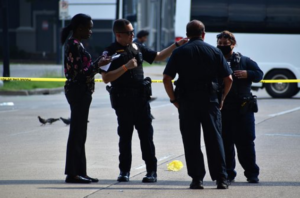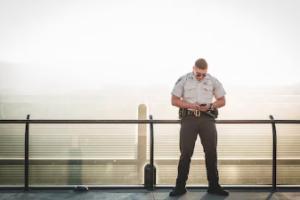Learning from our past is a cornerstone of professional improvement. In an effort to improve police responses, BlueLogic wants to provide an overview of several key lessons learned and findings of the Texas House of Representatives Interim Report 2022 following the Robb Elementary School
Shooting in Uvalde, Texas.
Incident: Robb Elementary School, Uvalde, TX
Incident: Robb Elementary School, Uvalde, TX
Date: May 24, 2022
Casualties: 21 killed / 17 wounded
4 KEY FINDINGS
1. No First Responder set up an Incident Command Post – Incident Command provides a critical framework for creating order out of chaos. “Despite an obvious atmosphere of chaos, the ranking officers of other responding agencies did not approach the Uvalde CISD chief of police or anyone else perceived to be in command to point out the lack of and need for a command post, or to offer that specific assistance”(8).2. Ineffective Radio Communication – During the incident, officers inside the school did not receive critical information due to radio communication breakdowns. For example, officers inside the school did not receive critical information that would have helped them determine whether this active shooter incident had transitioned to a “barricaded subject” incident. “The Marjory Stoneman Douglas High School incident in 2018 taught the importance of incident command structure for appropriate management of resources and that law enforcement responders must be prepared to use word-of-mouth communication when radio communications are overloaded.” (19).3. Door Breaching – During attempts to breach adjoining classrooms 111 and 112, it is likely that no officer attempted to open the door. Following a review, it was found to be likely that room 111 was unlocked. At no time did law enforcement call the school principal or custodian, both of whom had keys to the classrooms. Instead, law enforcement waited until breaching tools arrived at a later time.
4. Inaccurate Information Provided to Media – The initial briefing to the media was planned to be led by an officer who was on the scene during the incident. Due to unforeseen circumstances, that officer was unavailable to conduct the briefing, and another person was selected to replace the unavailable officer. Unfortunately, the selected individual did not have first-hand knowledge of the incident and inadvertently provided inaccurate information to the media. This inaccurate information was repeated by the Governor and the media. It is critical that law enforcement balances the need to provide rapid information to the public while ensuring the accuracy of that information.
The above findings do not represent all identified issues related to this incident but are a curation of lessons learned. They provide law enforcement with the opportunity to learn from our past, gain wisdom, refine strategies, improve decision-making, and set us up for long-term future successes.
Source:


